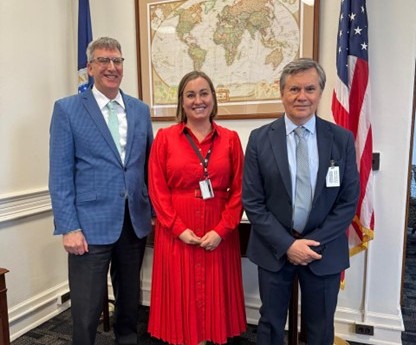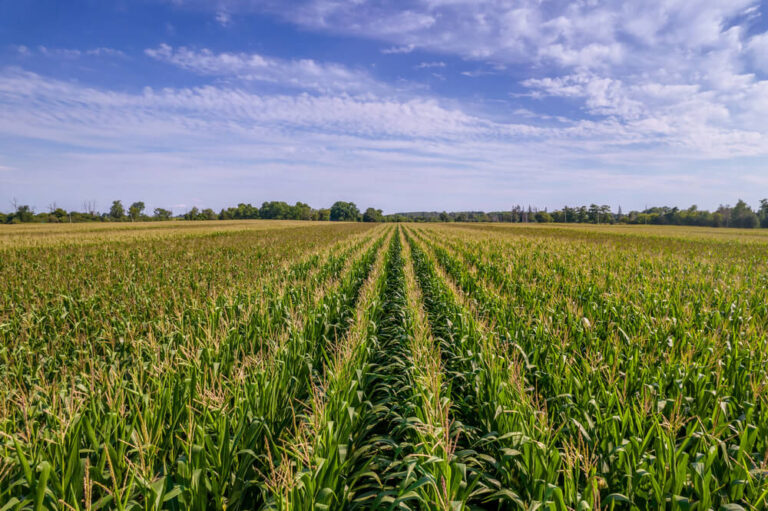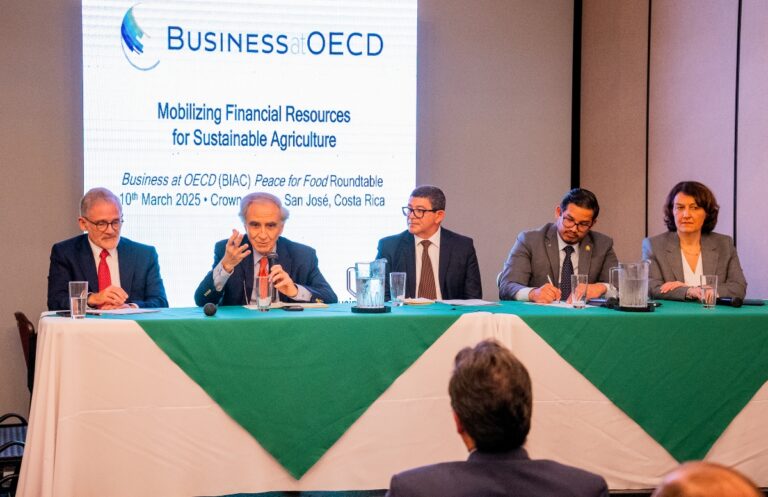IICA will have distinguished external advisers, such as the Minister of Agriculture of Uruguay, Tabaré Aguerre, and the former Minister of Agriculture of Brazil, Roberto Rodrigues.

San Jose, March 9, 2015 (IICA). On officially launching its flagship projects for the next several years and announcing the strengthening of its capabilities in agricultural health and food safety (AHFS), the Inter-American Institute for Cooperation on Agriculture (IICA) set up five high-level technical committees that will underpin the efforts of the organization and its member countries to promote agriculture and rural well-being.
The committees are comprised of members of the Institute’s own staff and internationally renowned external advisers specializing in areas that IICA regards as strategically important for meeting the challenges of agriculture in the Americas. The groups began their work during a meeting held at IICA Headquarters in Costa Rica.
Based on its 2014-2018 Medium-term Plan (MTP), the Institute is tweaking its cooperation model to enable it to focus on the areas in which it has competitive advantages and that it is best equipped to tackle. It is also committed to achieving concrete results for its member countries that will help improve agriculture at the national, regional, and hemispheric levels.
“Strengthening the Institute’s technical capabilities calls for changes, to enable us to evolve into an organization better prepared to respond to the current challenges facing agriculture,” commented Víctor M. Villalobos, the Director General of IICA.
He listed the challenges in question: bridging the gaps in productivity and competitiveness, reducing vulnerability to climate change and the degradation of natural resources, promoting the inclusion of women, young people, indigenous groups and people living in extreme poverty, achieving food and nutrition security, and tapping the opportunities for innovation in each country.
To support the efforts of its 34 member countries to meet those challenges, IICA will now carry out its work through the following four flagship projects (FP) and one cross-cutting area of work:
- Resilience and comprehensive risk management in agriculture
- Competitiveness and sustainability of agricultural chains for food security and economic development
- Inclusion in agriculture and rural territories
- Productivity and sustainability of family agriculture for food security and the rural economy
- Agricultural health and food safety (cross-cutting area of work).
The advisers on resilience are the Minister of Livestock, Agriculture and Fisheries of Uruguay, Tabaré Aguerre, and Allan Lavell, an associate researcher and coordinator of the Social Studies on Risks and Disasters Program of the Latin American Faculty of Social Sciences (FLACSO).
In the case of agricultural chains, the advisers are the coordinator of the Agribusiness Center of the Getulio Vargas Foundation in Brazil, and that country’s former Minister of Agriculture, Fisheries and Supply, Roberto Rodrigues, and the Chair of the Commission on Competitiveness of Mexico’s Consejo Coordinador Empresarial, Armando Paredes Arroyo-Loza.
The adviser on inclusion is Julio Berdegué, President of Chile’s Latin American Center for Rural Development; while the adviser for family agriculture, José María Sumpsi, is a professor of the Department of Economics and Agrarian Social Sciences of the Universidad Politécnica de Madrid.
Finally, Jessica Mahalingappa, the Administrator for Trade and Capacity Building of the U.S. Animal and Plant Health Inspection Service (APHIS), is the adviser on AHFS.
“It is vitally important for IICA to be able to avail itself of the advisory services of the technical committees, in order to keep abreast of the latest trends, challenges, and opportunities in relation to the flagship projects or agricultural health and food safety. The external advisers will also play a strategic role, ensuring that their vision and experience as part of global, cutting-edge institutions, organizations and companies is reflected in our activities,” the Director General of IICA pointed out.
Contributions with external vision
The external advisers were agreed on the need to address the challenges facing agriculture in the Americas with actions designed to achieve concrete results, as IICA proposes to do.
“This change in the cooperation model takes into account the fact that the countries’ needs must be addressed in a comprehensive way. IICA knows how to identify the requirements of the ministries of agriculture and provides innovative products with value added,” observed José María Sumpsi.
“Fifty years of experience in the agricultural sector have taught me that public policies are effective when the role of farmers is regarded as valuable for the development of the country concerned. That is why communication mechanisms need to be promoted that raise the profile of a sector that is capable of improving the health and living conditions of producers and consumers,” emphasized Roberto Rodrigues, former Minister of Agriculture, Fisheries and Supply of Brazil.
Allan Lavell highlighted the promotion of comprehensive risk management. “It is a development issue, not an environmental one or a question of protection. The biggest agricultural losses are caused by small and medium-scale climate variability events, not extreme ones,” he remarked.
“The best way for us to adapt to the climate variability of 2080 may be by adapting to climate variability year on year,” suggested Tabaré Aguerre, Minister of Agriculture of Uruguay.
“Food safety actions never cease, hence the importance of viewing agricultural health and food safety as a cross-cutting issue that requires constant work, coordinated with the other areas of agriculture,” pointed out Jessica Mahalingappa.
For Julio Berdegué, work on rural inclusion is very timely. “A lot of research has been carried out on this subject in Latin America and the Caribbean, and sophisticated analyses of inequalities have been produced. This has led to a new generation of social inclusion policies, such as in Peru,” he explained.
More information:
salvador.fernandez@iica.int











